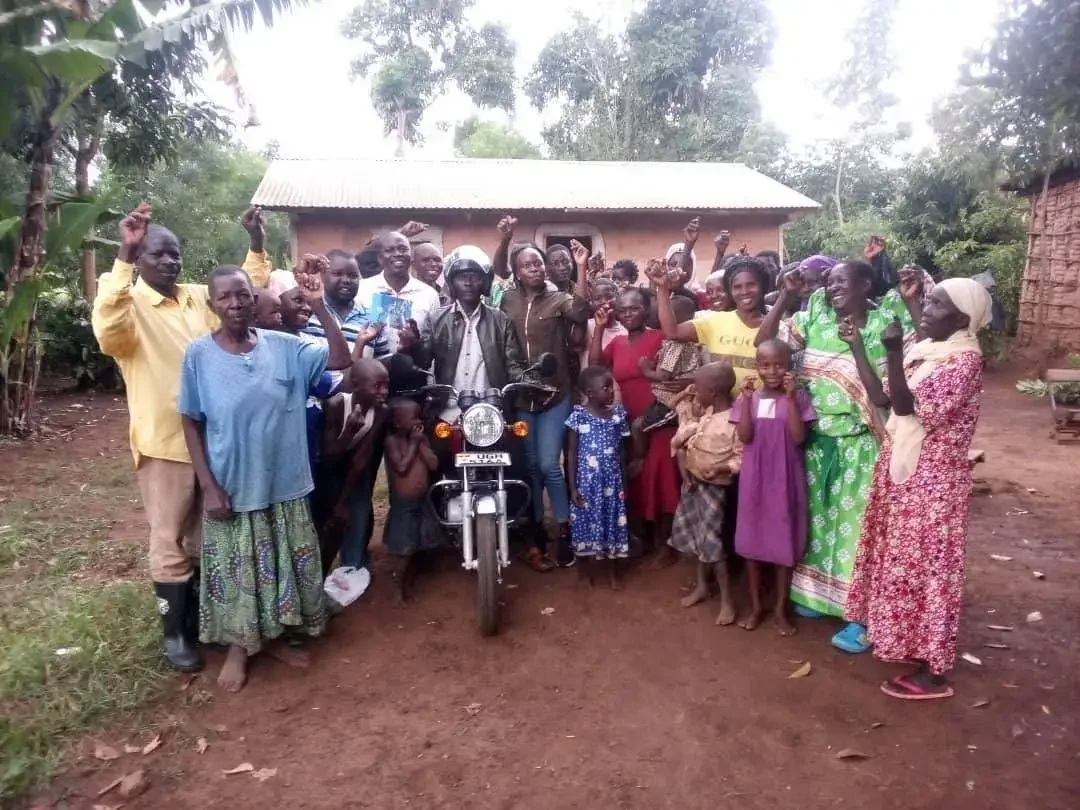WANGULA: Bushiyende's Path to Financial Freedom
Before 2023, the Bushiyende Community in the Bulambuli District of Uganda faced limited economic opportunities and weak social bonds. The village did not hold regular meetings to discuss community development, lacked savings groups, and struggled to establish pathways for improving livelihoods. The absence of a unified purpose left many community members feeling isolated and trapped in a cycle of poverty.
In 2023, the residents of Bushiyende began meeting as a community through Spark Microgrants’ Facilitated Collective Action Process (FCAP), a village cash plus inclusive planning process. The village engaged in financial literacy training and community-building activities, equipping residents with new skills and nurturing a sense of unity around a shared goal: to reduce household poverty by 50% within two years. To accomplish this objective, they used their microgrant to purchase four motorcycles for an innovative business venture.
The community-owned business, aptly named "Wangula" (meaning "win" in their dialect), has become the cornerstone of the Bushiyende Community's financial growth. The business model is simple: members lease a motorcycle by making an initial payment of UGX 1 million (about USD 273) and committing to weekly payments of UGX 63,500 (USD 17) over two years. Upon completing the payments, the member takes ownership of the motorcycle. However, failure to meet three consecutive weekly payments results in the motorcycle being reclaimed and sold to another member.
Since its inception, the community has successfully distributed all four motorcycles it procured to members. Within just four months, the business has generated impressive earnings of UGX 4.8 million (USD 1,307). This financial success enabled the community to purchase a fifth motorcycle, further expanding their collective income potential.
The benefits of Wangula extend far beyond the provision of motorcycles. Using the initial UGX 4 million (USD 1,092) collected from the four motorcycles, community members decided to purchase livestock—goats, pigs, and sheep—for 35 of the 81 households. This initiative will continue until every household owns an animal.
Additionally, community members have also launched a savings group and independent projects in which they pool funds to purchase household items like utensils and chairs for two families each week. This approach ensures that even the smallest efforts contribute to the collective uplifting of the community.

